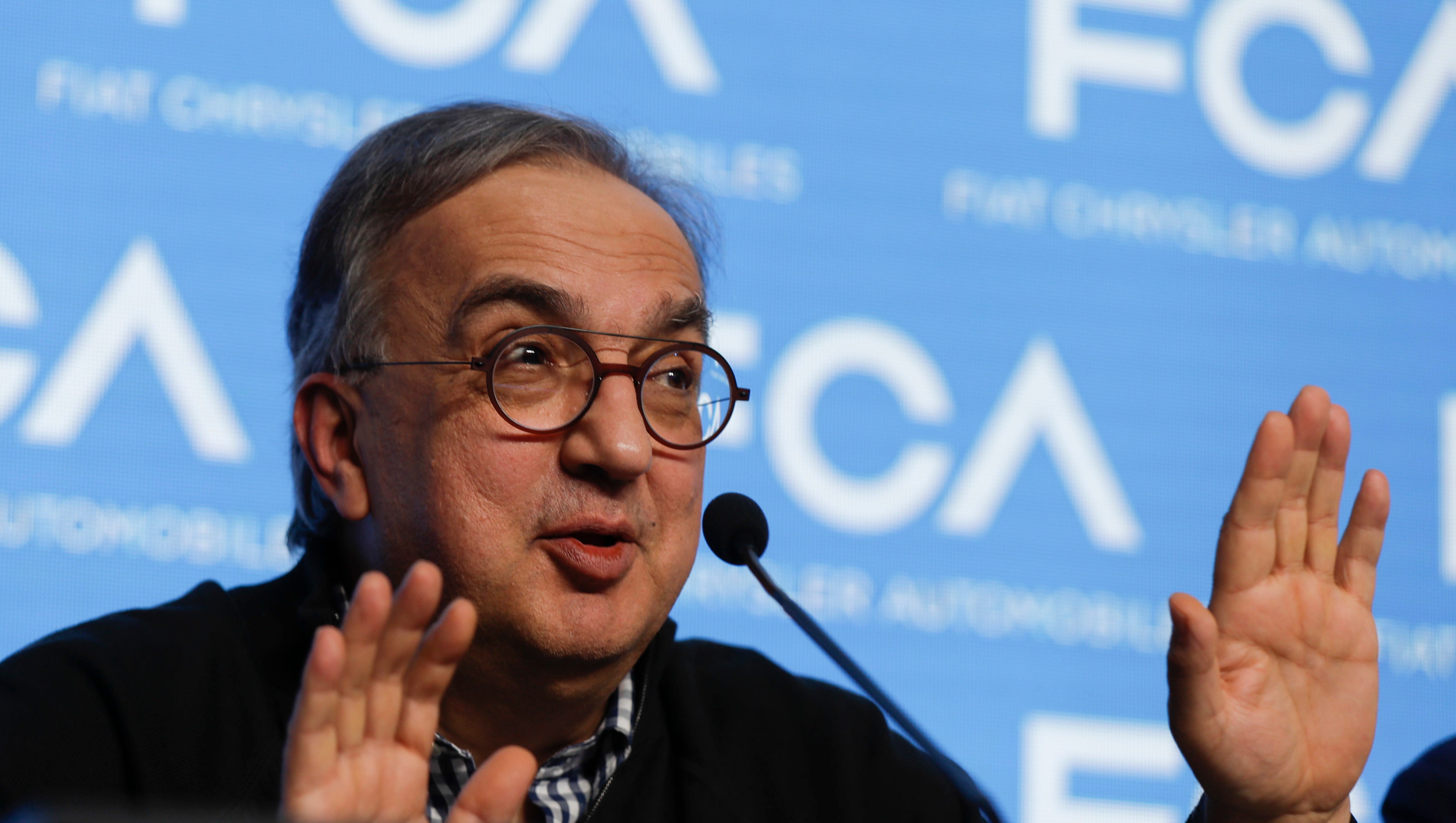Howes: FCA setting audacious five-year goals
 Daniel Howes
Daniel Howes
If Sergio Marchionne’s successor can deliver on the five-year plan detailed last week in Italy, it’d mark the most impressive global automotive turnaround in at least a generation.
He knows this, of course, never being one to shrink from the bold gestures and honest assessments most of his chief executive peers wouldn't dare voice on-the-record. He decried the industry's tendency to incinerate capital when others wouldn't, conducted a public, if unsuccessful, campaign for a strategic partner, and declared the Death of the American Car long before his rivals.
But the most profitable Detroit automaker operating in the United States by 2022? That's an audacious goal for a CEO whose audacity is exceeded only by his affinity for black cotton sweaters and willingness to call 'em as he sees 'em.
The spawn of two of the industry’s most beleaguered players, Fiat Chrysler Automobile NV is making two huge bets on seeming contradictions. It's fielding a broadening array of Ram pickups and Jeep SUVs to drive fattening profit margins even as it executes a global electrification strategy whose linchpin is deepening ties with the leader in autonomous vehicle development – Google parent Alphabet Inc.’s Waymo.
This from the guy who used his annual gabfest at the Detroit auto show in January to question the investment case for autonomous vehicles and the profit potential for electrified powertrains. But his fast-follower approach – rooted in the beliefs that government regulation is driving change and that Silicon Valley will shape self-driving software faster than Detroit – isn't necessarily destined for the back of the pack.
Not too bad for ol' Chrysler and Fiat, the proverbial sick men of their respective continents. Their revival, accelerating nine years after Chrysler Group LLC's federally induced bankruptcy, has one stark common denominator. It's Marchionne, the 65-year-old CEO who will relinquish the top job to a member of his executive team when he retires next April.
Remember the circumstances when Marchionne and what was then Fiat SpA gained control of Chrysler. Detroit's No. 3 automaker was destined for Chapter 11 restructuring after a new president, Barack Obama, and his automotive task force agreed to save Chrysler and its jobs from collapse.
In stepped Marchionne. He gained control of one of the global industry's most valued brands – Jeep – for essentially nothing. He claimed the storied pedigree of Chrysler's minivan, now a cornerstone of FCA's autonomous tie-up with Waymo; grabbed a reputable truck brand in Ram; and proposed to pair them with two of Europe's most under-utilized luxury brands, Maserati and Alfa Romeo.
Execution matters most. That and recognizing that the market isn't the only demand pushing automakers. Government regulators, especially in China and the European Union, are shaping industry decision-making despite a lot more tenuous connections to consumers.
The resulting tension is the new battleground for automakers. It's why they're cutting cars and expanding offerings of trucks and SUVs, because that's what buyers are demonstrating they want. It's why they're planning to offer electrified powertrains across their lineups despite meager demand, because that's what regulators increasingly require.
It's why shareholders are more likely to see aggressive financial controls replace the patient-capital bias that has characterized the industry for arguably way too long. Pulls from consumers on one side and pushes from regulators on the other are forcing c-suites to make tough, even impatient, calls on where to deploy capital, how much and when to redirect it.
In a race including cash-rich tech giants like Alphabet and Apple Inc., lower-margin automakers need to husband their resources more carefully; need to abandon money-losing models and regions sooner than they otherwise would; need to embrace the world as it is, not as they think it should be.
Automakers are showing they feel no obligation to field full lineups of cars, trucks and SUVs. FCA killed production of cars at its U.S. plants long before its crosstown rivals. Ford Motor Co. is dumping four of its five cars and replacing its Focus with a crossover version built in China for the U.S. market. General Motors Co. exited regions, even bolting Europe after 90 years there.
Change is accelerating, and ol' Sergio looks determined to ensure FCA will be part of it.
Daniel.Howes@detroitnews.com
(313) 222-2106
Daniel Howes’ column runs Tuesdays, Thursdays and Fridays. Follow him on Twitter @DanielHowes_TDN, listen to his Saturday podcasts, or catch him 3 and 10 p.m. Thursdays on Michigan Radio’s “Stateside,” 91.7 FM.